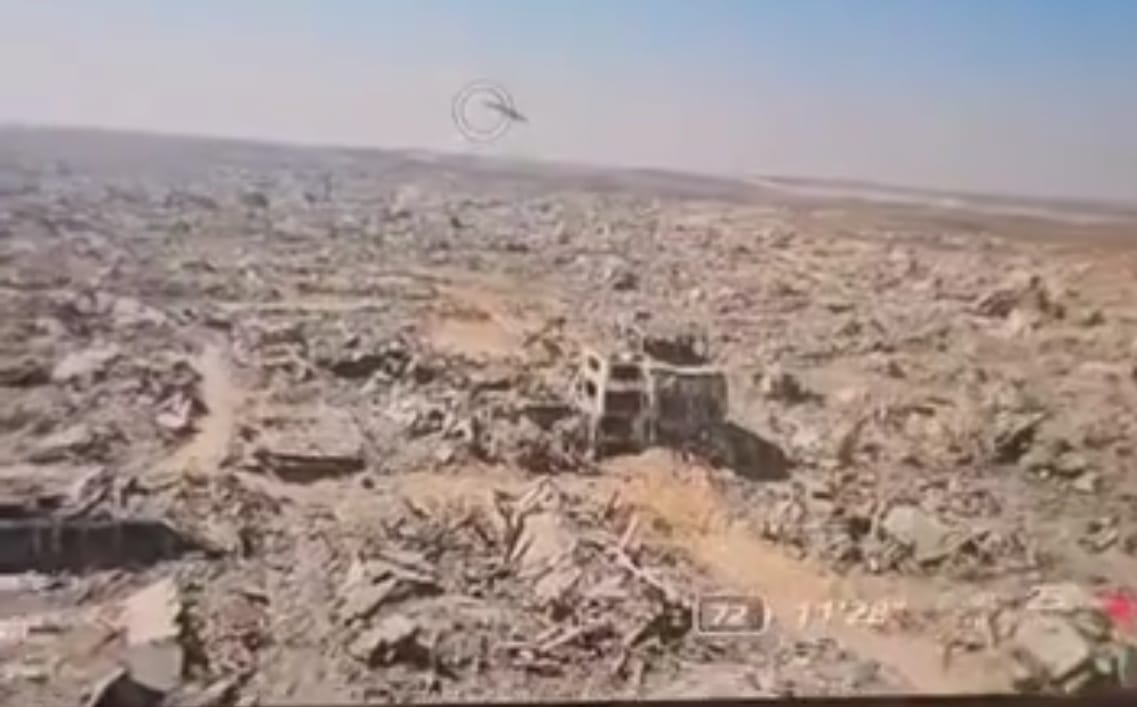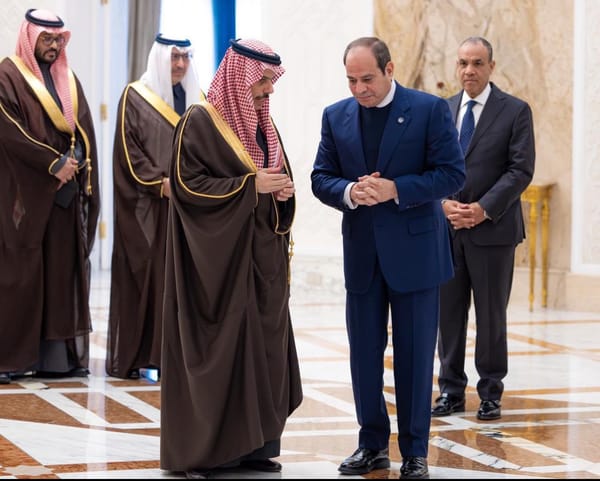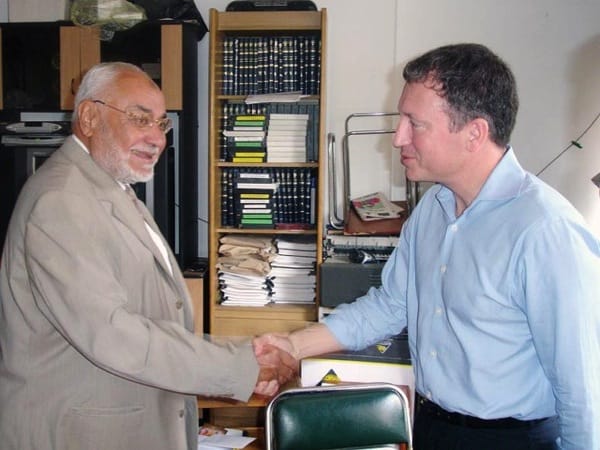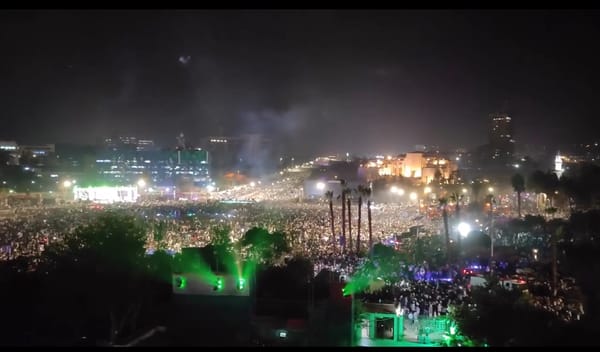Normalizing Gaza's genocide

And other big questions about the direction of Middle Eastern politics.
Thank you so much for subscribing to Abu Aardvark's Ghost and the MENA Academy (sounds like a killer indy band, right?). Moving from Substack to Ghost raised the costs of maintaining the blog considerably – Ghost's price tiers are based on the total number of subscribers. I rely on my core supporters with paid subscriptions to keep it going, and would deeply appreciate more. So I'm running a 25% off annual subscription promotion for the new academic year. I know things are tight for everyone in these terrible times, but if it's possible for you to join the club it would mean a lot. Thanks!
There has been a clear tipping point in views about Israel's war on Gaza over the last few weeks as undeniable reports of famine and impending mass starvation due to Israel's blockade finally broke through the fog of indifference. The sudden and dramatic shift has been welcome, if somewhat dizzying – everyone, as predicted, has now always been against this (even though we all know that they weren't). There's still far too much handwringing about whether Gaza technically meets various legal definitions or how much to blame Hamas or how seriously to take the statements of Israel's prime minister/senior government and military officials/leading politicians and statements of intent, but nobody seriously still disputes the magnitude of Israel's systematic destruction of virtually the entire territory, displacement of virtually its entire population, killing of wildly disproportionate numbers of women and children (and journalists and health care workers), starvation and imposed famine through blockade. Everyone basically agrees now that Israel's destruction of Gaza is at least close to genocide.
But that hasn't led to any meaningful actions to stop it. Instead, we are at best seeing only token, symbolic responses like the push to recognize the State of Palestine or the incredibly cynical pretence of humanitarian aid delivery through the militarized Gaza Humanitarian Foundation. Israel's government has authorized a plan to invade and occupy what's left of Gaza and is reportedly in discussions about where it might deport those Gazans who have survived its massacres, displacement and famine (South Sudan and Somalia? Really?). The American-led assault on the ICC and ICJ for their prosecutions of Israel over genocide haven't gone away. The domestic American crackdown on critics of Israel's war on Gaza and on universities over alleged tolerance of antisemitism have only accelerated. Trump's appalling plan to depopulate Gaza to build beach resorts remains operative as far as we know.
The Israeli government clearly seems to believe that it can safely ignore international opinion as it continues and accelerates its plans in Gaza – and increasingly openly in the West Bank. The disconnect between its views and that of most of the world has only widened, but it clearly doesn't think that any states that matter will really do anything about it. It views its regional adversaries as decimated and its tacit regional allies in the Gulf as still willing to play along even if when they make gestures about Gaza to placate local public opinion. And it sees the Trump administration as fully on board with its extremist agenda, and still backed by far too many Democratic politicians at odds with the clear views of their voters. The defense of Israeli impunity is not just a local affair, it is an affront which seems likely to bring down the entire edifice of international law, global human rights, and long-established norms against genocide and war crimes. It's hard to not conclude that for the Trump administration, that's part of the appeal.
Last week, in my post about the omnicrisis facing higher education, I mentioned how interesting it was to be teaching the international relations of the Middle East for the first time since fall 2023. For the purposes of international relations, this all represents a pretty profound test of a lot of different theories. Is Israel right that Arab states will continue to defy public opinion in perpetuity? Is it right that it can construct a new regional order based on military supremacy in the absence of any normative legitimacy? Is it overconfident in its military superiority, repeating the mistakes which led it to fail to anticipate the surprise Egyptian-Syrian attack in 1973 – or the Hamas surprise attack almost exactly 50 years later? Is it right that global normative outrage and defiance of international legal institutions doesn't matter? Is it wrongly discounting the longer-term implications of becoming a global pariah, an entire generation viewing it through the lens of genocide, or correctly betting that memories will fade? Is it wrong to take American support for granted despite the manifest shifts in public opinion, especially among Democrats and Independents, or is it correctly confident in the control its allies continue to wield within political institutions and party elites?
So much has happened that it can feel like everything has changed and that we live in an entirely new Middle East, but at other times it feels like for all the noise nothing fundamental has really changed. It's a real test for both theory and policy: which changes matter and which seem superficial, which theories hold up and which don't, which causal mechanisms operated as predicted and which didn't. But it's also easy to overreact to dramatic events; in their own outstanding assessment of the region after October 7 (probably the best yet published), Morten Valbjørn, Andre Bank and May Darwich remind us of the late Fred Halliday's classic warning: "there are two predictable, and nearly always mistaken, responses to any great international upheaval: one is to say that everything has changed; the other is to say that nothing has changed."
In their contribution to our recent edited volume on regional order, Raffaella A. Del Sarto, Helle Malmvig and Eduard Soler i Lecha focus precisely on the question of change. They distinguish between changes of the regional order and changes within the order, arguing that no matter how dramatic, "developments.. do not typify a change of the order if they do not fundamentally alter one or several of the region's primary constitutive elements." Del Sarto, Simon Mabon and I develop this approach in our assessment of the region after October 7 by "focusing on the main structuring principles across different levels of analysis, the analysis considered not only the distribution of material power but also shared norms and rules that foment common assumptions and expectations, the type of security relations, region-wide securitization dynamics, and the degree of violence across the region." In other words, a change in the balance of power between the same rival states is not a change of the order. The Arab uprisings might have changed the order, but the counter-revolutionary powers managed to prevent that from manifesting.
Teaching about the IR of the Middle East now means assessing whether October 7 and the events which followed – the devastation of Gaza, the destruction of Hezbollah, the twelve day war with Iran, the overthrow of Bashar al-Asad in Syria – add up to a change of the system. In the introduction to our POMEPS Studies collection, Del Sarto, Mabon and I argue that
"Israel’s extremely violent military reaction to the Hamas attacks—in Gaza, vis-à-vis Hizballah in Lebanon, and toward Iran—has altered the balance of material and ideational power of the main parties to the conflict, clearly in Israel’s favor. The region’s structuring principles and normative underpinnings have also been shaken profoundly, while persistent and massive violations of the rules of the international order and the laws of war have become the new normal. It is still too early to reach a definite conclusion on what type of change we are witnessing and what the implications in the medium and long run will be. However, all considered, a significant threshold may have been crossed in terms of the shift away from the previous order, but consolidating into a new order in the absence of significant shared normative underpinnings may prove challenging. Developments in the Middle East after October 7, 2023, are therefore very likely to foreshadow a lengthy period of the repeated, contested, but inconclusive efforts to define a new order."
The regional order has proven remarkably, doggedly resilient despite massive changes and systemic shocks – even as dynamics within that order have taken on dramatically different forms. The Arab uprisings failed to transform the order because of the counter-revolutionary axis, but Middle Eastern international relations in the decade following the uprisings looked dramatically different than in the past – more proxy wars and interventions, ideological combat between the Saudi-UAE and Qatar-Turkey blocks playing out across the region, and so forth. This period seems likely to manifest a similar pattern of the order broadly speaking holding but the dynamics within that order changing dramatically. But how, exactly? When should we expect them to manifest?
Those are the kind of big questions I'm looking forward to taking on in the classroom this fall, and on the blog, and in an exciting new writing project that I'm not quite ready to announce yet. Stay tuned. And don't forget that 25% discount for new subscriptions between now and the start of the semester!



